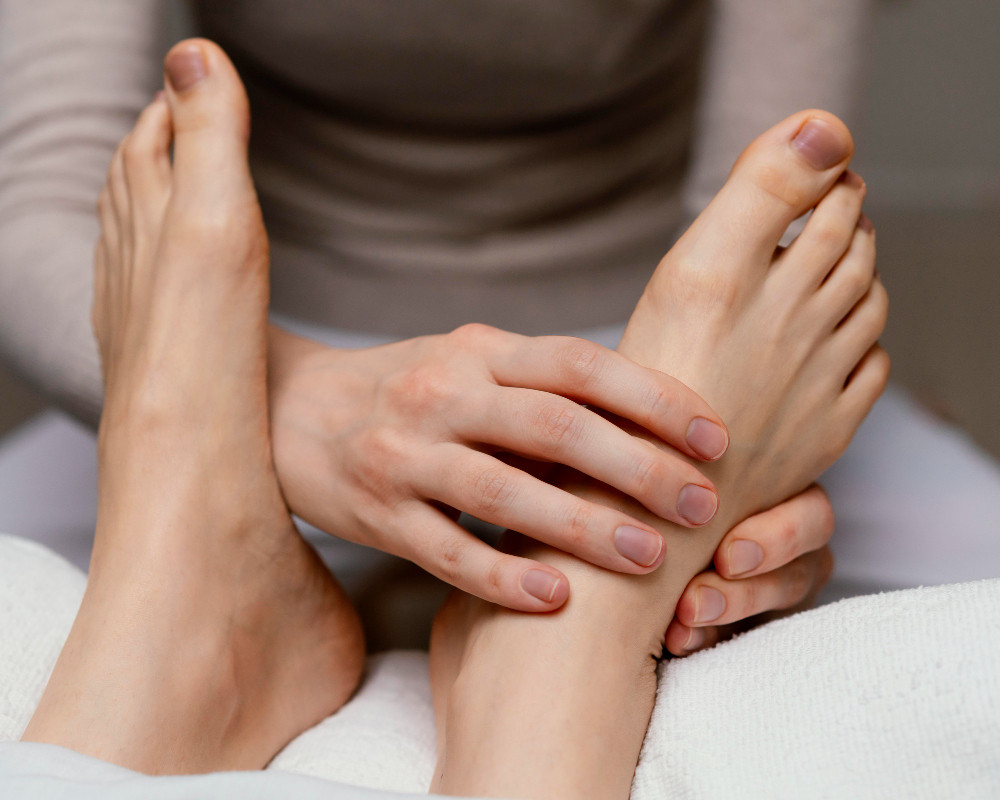Definition
Myoclonus is a muscle spasme ( Muscle stiffness) that occurs suddenly. This muscle Spasme is uncontrollable or consciously dismissed. Myoclonus can involve a muscle or a group of muscles. Muscle spans generally occur in conditions that are considered normal such as plugs, or become a marker of an underlying serious illness such as multiple sclerosis, demensia, or Parkinson's disease.
Cause
Myoclonus occurs because the nervous system does not work as it should. There are things that make your nerve cells active and give the wrong signal to your muscles. Some parts of the brain are suspected of being involved in myoclonus, although this is still unknown with certainty. Sometimes, the cause is unknown.
If you suffer from multiple sclerosis (conditions in which the immune system attacks nerve cells), myoclonus can occur due to an injury to the brain or spinal cord. Another neural disorder that can cause myoclonus is:
- Stroke.
- Brain tumor.
- Alzheimer's disease.
- Parkinson's disease
- Lewy's agency dementia, one of the types of dementia that causes a decrease in the function of thinking.
- Head injuries or spinal cord.
- Neural infections due to bacteria, viruses, or other microbes.
Medical conditions other than neurological disorders that can cause myoclonus are:
- Kidney failure or liver failure.
- The effect of opioid drugs in high doses.
- Heart attacks that reduce the amount of oxygen to the brain.
- Metabolic problems such as sugar levels that are too low or high, as well as low calcium or sodium.
Risk Factors
Myoclonus attacks men and women in the same number. In addition, if you have a family history, you are at risk of experiencing myoclonus as well. This is the only known risk factor, but genetic relationships are not yet known.
Symptoms
The degree of myoclonus complaints varies from mild to severe. Muscle scams can rarely occur or are often experienced by patients. Symptoms that arise generally match the underlying medical illness.
Spasme or muscle susceptibility in myoclonus has the following characteristics:
- Unpredictable.
- It happened suddenly and only for a moment.
- Uncontrollable.
- Similar to a sting or shock.
- It has irregular intensity and frequency.
- It only occurs in one body part, or spreads throughout the body.
- Annoying eating, talking, or movement.
There are several types of myoclonus that are common, namely:
- Action Myoclonus
It is the worst type of myoclonus. Myoclonus action can affect the arms, legs, face, and sound. Muscle resistance will get worse when trying to move. Generally, this condition most often occurs due to lack of oxygen or blood flow to the brain.
- Myoclonus Reflects On Korteks
Derived from the sougenesis of the brain that is excessive to nerve stimulus. Tightness can affect some muscles in one part of the body or a lot of muscle simultaneously. This type becomes more severe by moving in a certain direction.
- Mioclonus Palatum
Influence the ceiling of the back mouth. This type causes regular and rhythmic susceptibility on one or both sides of the mouth ceiling. It can also affect the face, tongue, throat, and diaphragm. The strain is very fast, it can reach 150 times/minute. Some people can hear the sound decaying in their ears along with the tightness of the muscles.
- Physiological Myoclonus
Mioclonus that occurs in healthy people. This type usually doesn't require handling. This type of muscle spasme includes rickshaws, spasme at the beginning of sleep, anxiety-related spasme or exercise, and a sudden strain of the baby's muscles that occurs during sleep.
- Myoclonus Sleep/Hipnik
Occurring while sleeping, the possibility of therapy is not needed. However, this could indicate more significant sleep disorders such as restless leg syndrome (the feet can't stop moving).
Diagnosed
Several tests can help identify and diagnose the cause of myoclonus. Doctors can ask about the history of the illness and symptoms they have experienced, then perform an initial examination. Doctors can also advise you to undergo several tests such as:
- EEG (electroencephalography) or brain electrical recording to determine electrical activity in the brain.
- Imaging like magnetic resonance imaging (MRI) or combined tomography scan (CT scan) to find out about the problem of a nerve structure or tumor.
- EMG (electromography) or muscle electrical recording to measure electrical activity in muscles in order to find out the pattern of myoclonus.
- Laboratory examinations to determine any conditions that affect myoclonus, such as:
- Diabetes mellitus.
- Metabolic issues.
- Autoimmune oanyakit (body defense cells attack the body's own parts).
- Kidney or liver problems.
- Medicines or toxins.
Laksana Procedure
Myoclonus management depends on the medical conditions mentioned above, such as metabolic disorders, neurological diseases, drug effects, and others. The medical condition needs to be addressed first to relieve myoclonus. However, myoclonus itself is sometimes difficult to handle. In some cases, you will get several drugs at once. These drugs affect different parts of the brain.
Generally, benzodiazepin-class drugs are the first drugs doctors use. This drug serves to make muscles relax more and don'tget. The side effects that often occur are often sleepy, and become more careless. Therefore, the doctor will start therapy from a small dose, then increase it until symptoms don't occur.
There are no effective drugs in myoclonus, and some therapies can worsen the coordination of patients' cognitive movements or status. Therapy is usually given to patients who already have significant physical and social disabilities or limitations due to myoclonus.
In addition to drugs, there is also therapy deep brain stimulation (DBS). In this procedure, doctors will install electrodes on your brain and use cables to connect them with a device planted on your chest. This tool will emit a signal to block the electric signal that causes myoclonus. DBS can reduce the amount of muscle susceptibility, but like other surgery, it has a risk. Currently, DBS is most often used as handling Parkinson's disease
Complications
If there are no conditions that can cause myoclonus, muscle spasme may not be a problem in your daily life. Some severe cases can cause problems in movement, such as eating, talking, or walking. Doctors will help you reduce muscle susceptibility.
In addition, the drugs given to reduce myoclonus symptoms also have side effects such as drowsiness, dizziness, fatigue, and anxiety easily while walking. Not only that, the effect can decrease if the drug is consumed continuously.
Prevention
Myoclonus is not always preventable. You can do some things to lower your risk and vulnerability to myoclonus, such as:
- Protect yourself from brain injury by using a head shield or helmet when doing activities such as cycling and riding a motorcycle.
- Call a doctor if you experience muscle susceptibility after starting a drug therapy so the doctor can change the treatment.
When Do You Have To Go To A Doctor?
If myoclonus symptoms get more frequent, last longer, or get worse, you can tell your doctor for further examination, diagnosis, and management. If myoclonus is accompanied by other symptoms of the disease, doctors can provide therapy for the disease.
Want to know information about other diseases? Check here, yes!
- dr Hanifa Rahma
Booth, S., & Pichardo, G. (2022). Myoclonus. WebMD. Retrieved 28 September 2022, from https://www.webmd.com/multiple-sclerosis/myoclonus-muscle-twitching.
Giorgi, A., & Sampson, S. (2019). What You Need to Know About Myoclonus. Healthline. Retrieved 28 September 2022, from https://www.healthline.com/health/myoclonus.
Myoclonus - Symptoms and causes. Mayo Clinic. (2020). Retrieved 28 September 2022, from https://www.mayoclinic.org/diseases-conditions/myoclonus/symptoms-causes/syc-20350459.
Caviness, JN., Hurtig, HI., Eichler, AF. Treatment of Myoclonus. (2022). Retrieved 03 October 2022, from https://www.uptodate.com/contents/treatment-of-myoclonus?search=myoclonus&source=search_result&selectedTitle=2~150&usage_type=default&display_rank=2.











